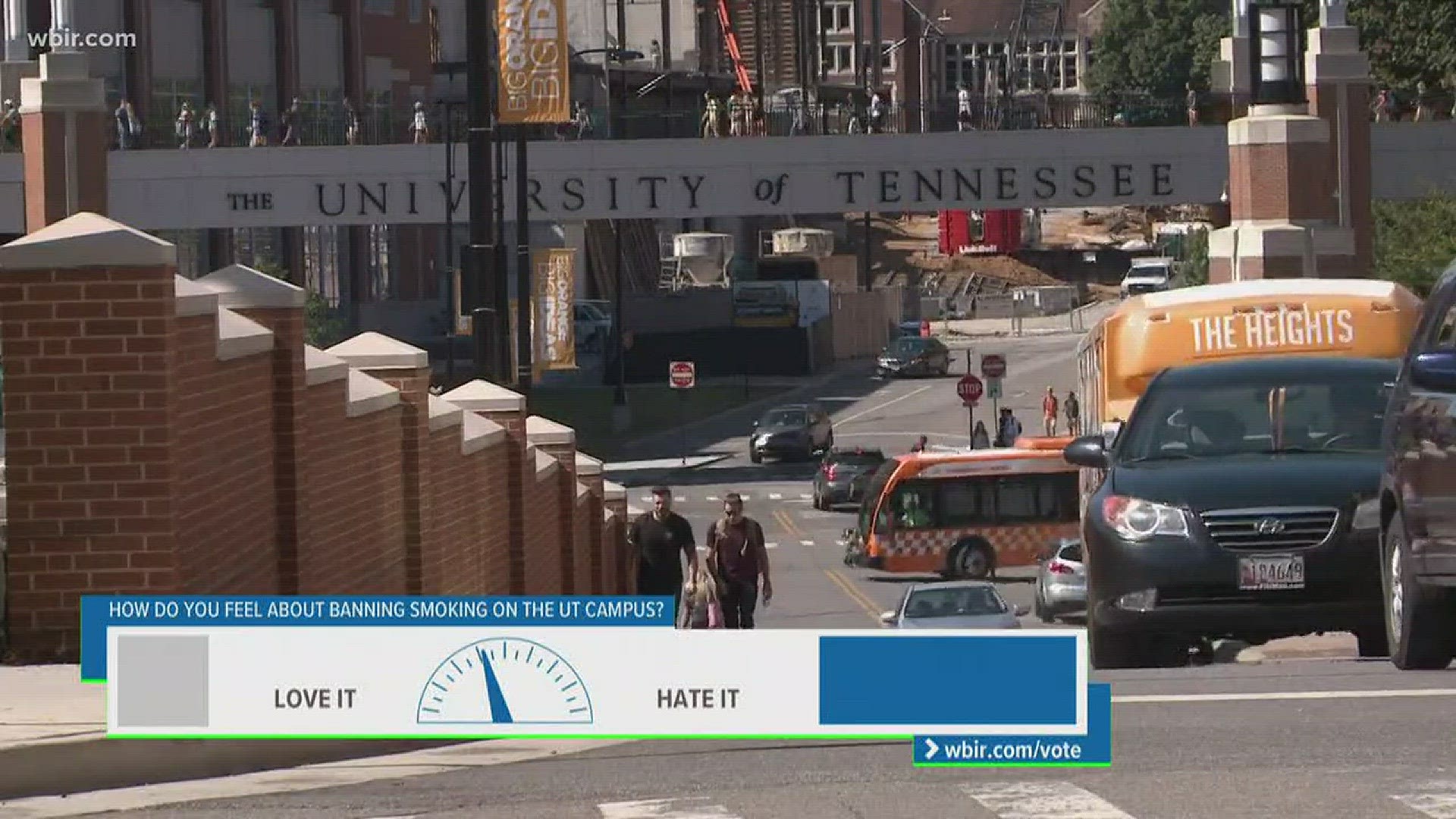The University of Tennessee Knoxville campus might very well soon be a smoke-free one.
After formally implementing a smoking policy in October, Amy Blakely with UTK public relations said the campus has formed another smoking task force that has been meeting this month to review the recently implemented smoking policy.
She said the group has been taking input from the campus community and could draft a revised smoking policy for consideration later this semester.
A survey conducted by the task force states the campus is exploring the idea of a smoke-free campus, and Blakely confirmed the survey was related to the task force's current goals. It asks people on campus what resources they'd like to see offered in the event the campus moves to a smoke-free policy, how to make the transition easier and ways they'd like to see the change communicated.
The campus' current smoking policy went into effect on Oct. 1, 2017 following a push by the university to study alcohol and tobacco use on campus. The current policy prohibits smoking in all forms, including e-cigarettes, inside and within 25 feet of buildings on campus as well as buildings owned and operated by the university.
If and when the university decides to move to a completely smoke-free campus, that ban would likely extend to widely ban all forms of smoking on all areas of campus property at all times, both indoors and outdoors, and extend to all other facilities outside the main campus operated by UTK. This would also include Neyland Stadium and other UTK operated facilities that hundreds of thousands of Tennesseans frequent.
Currently under Tennessee State law, there are numerous exemptions to the state's Non-Smoker Protection Act. The law generally applies smoking bans inside public and private places of business for "inhaling, exhaling, burning, or carrying any lighted cigar, cigarette, pipe, or other lighted tobacco product in any manner or in any form ...” E-cigarettes are not included in that statute currently, and there are no requirements for public or private entities to ban smoking in the non-enclosed public portions of their property.

